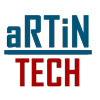While it is difficult to list all possible business flows, it is important to understand the way different business processes depend on each other to be able to automate and improve the processes. Without such understanding, selecting the right system for your digital transformation, automation, and modernization would be difficult and sometimes wasteful. Here is a list of some of the most common business flows:
Make-to-Order (MTO) – products are manufactured or procured only after the customer places an order.
Make-to-Stock (MTS) – products are manufactured or procured based on demand forecasts or historical data, and then sold from the inventory.
Engineer-to-Order (ETO) – products are designed and engineered to meet the specific customer requirements.
Assemble-to-Order (ATO) – standard components and modules are assembled to create a final product that meets the customer’s requirements.
Configure-to-Order (CTO) – the product is built to order, but the configuration of the product is based on predefined options and features.
Build-to-Order (BTO) – products are manufactured or assembled only after the customer places an order.
Batch Production – products are manufactured in batches based on a predetermined production schedule.
Job Shop – each product is unique and requires custom engineering and manufacturing processes.
Continuous Production – products are manufactured continuously, without interruption.
Service – intangible products are delivered as a service to the customer.
Project-Based – products are delivered as part of a larger project that may involve multiple components and stakeholders.
Lean Manufacturing – the focus is on reducing waste and increasing efficiency by eliminating unnecessary inventory and streamlining processes.
Traditional Manufacturing – products are manufactured in batches, and inventory is built up to ensure smooth production flow.
Push System – production is based on a forecast of customer demand, and products are manufactured or procured in advance.
Pull System – production is based on actual customer demand, and products are manufactured or procured only when the customer places an order.
Just-in-Time (JIT) – production is synchronized with customer demand to minimize inventory and reduce waste.
Demand-Driven Manufacturing – production is based on real-time customer demand, and the supply chain is managed to respond quickly to changes in demand.
Mass Customization – the company offers a wide variety of options and configurations for its products, but the products are still manufactured in large quantities to achieve economies of scale.
Modular Manufacturing – the product is designed and manufactured as a series of modular components, which can be combined in different ways to meet the customer’s requirements.
Reconfigurable Manufacturing – the manufacturing process is designed to be flexible and adaptable, so the company can quickly reconfigure production to meet changing customer needs.
Agile Manufacturing – the manufacturing process is designed to be responsive and adaptable to changes in customer demand, market conditions, and other factors.
Hybrid Manufacturing – the company uses a combination of different manufacturing methods, such as traditional manufacturing and lean manufacturing, to optimize production efficiency and flexibility.
Collaborative Manufacturing – the company partners with other organizations, such as suppliers, customers, or other manufacturers, to create a collaborative manufacturing network that can respond quickly to changes in demand.
Circular Manufacturing – the company designs products and manufacturing processes that are sustainable, eco-friendly, and minimize waste, and which can be recycled or reused at the end of their lifecycle.
Servitization – the company offers products as a service, rather than selling the product outright, and may provide ongoing support, maintenance, and upgrades to the customer.
How Artintech ERP can help with these processes? #
Several modules in Artintech ERP can be used to automate these processes. Examples of these modules would be:
- Procurement Module
- With modules such as Reorder Management, Purchase Order Management, Supplier Management, Accounts Payable, and Supplier Invoice and Quotes Lists, our software streamlines your procurement process and saves you time and money. With Artintech ERP, you can easily manage your suppliers, track orders, and analyze supplier performance. Our user-friendly interface and customizable dashboards make it easy to access the data you need, when you need it. Upgrade your procurement game with Artintech ERP today.
- Warehouse Management System
- Keep track of the movement of goods and materials throughout your multiple warehouses and beyond. Manage your transfer orders, and quickly locate your inventory.
- Sales CRM
- Manage Sales Orders, Proforma Invoices, Invoices, and more. Create a visual product catalogue, plan your discounts or even check the performance of your sales representative.
- Manufacturing
- Make sure your manufacturing processes are well-managed. Create and manage your bills of materials and manufacturing orders and automatically have your input and output inventory updated.
- Project Control
- Manage your project all from one simple panel. Manage your project sales funnel, task checklist, material, invoices, and direct costs, all from a single dashboard.
- Shipping and Distribution
- This module helps you track your packing lists based on sales orders, check your truck loads and in-transit items, get customer signature on delivery point, and much more.




